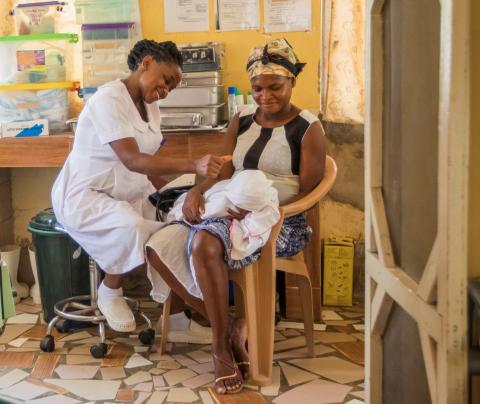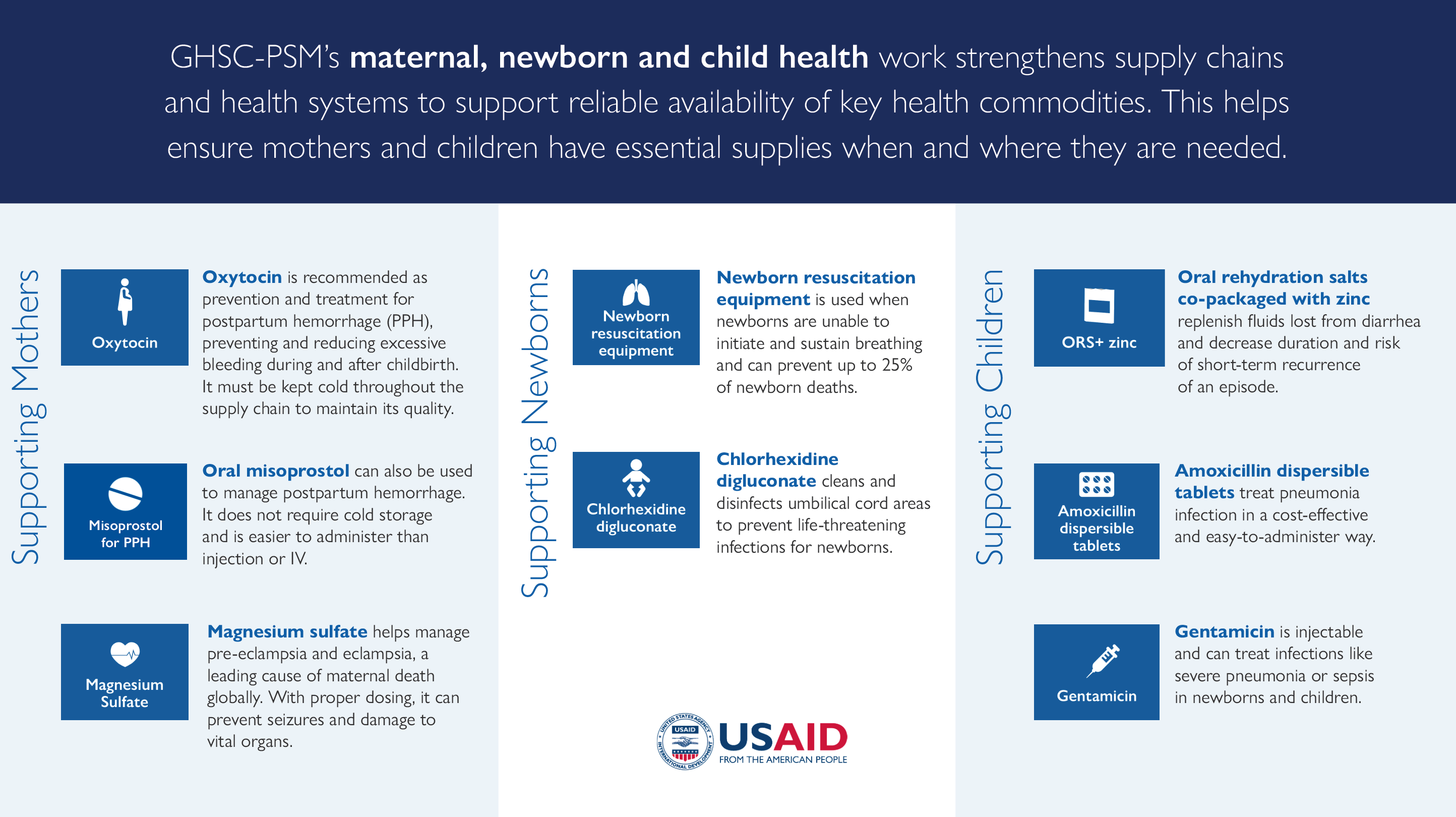The USAID Global Health Supply Chain Program-Procurement and Supply Management (GHSC-PSM) project operates worldwide to strengthen supply chain systems to improve the availability of quality medicines and medical supplies. The project includes a dedicated workstream that targets commodities to address health threats to mothers, newborns, and children and for Zika-related prevention.


